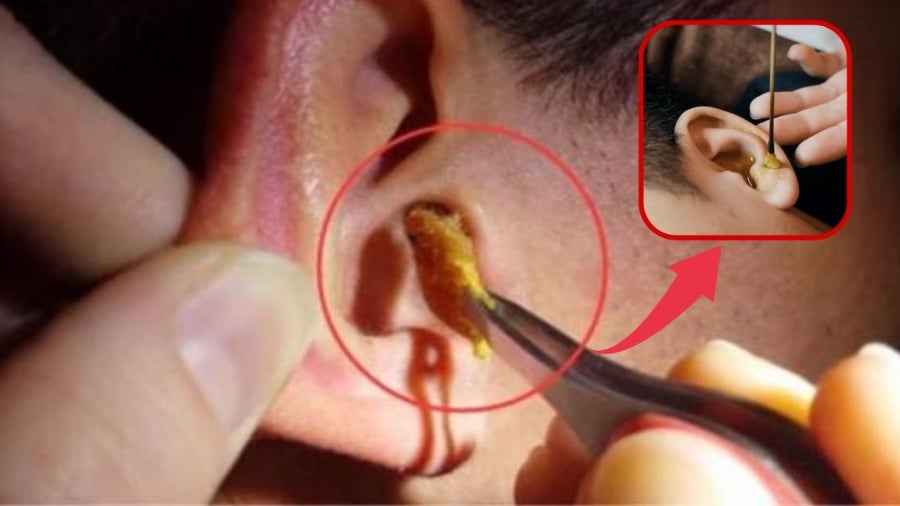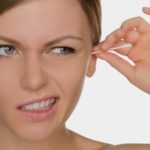Earwax, or cerumen, is a natural secretion that occurs in the outer ear canal and acts as a protective barrier against bacteria and fungal infections, thus safeguarding our hearing. It also helps to lubricate the ear canal, enabling the easy transmission of sound waves, and prevents insects and dirt from entering the ear. The composition of earwax can vary depending on genetics, ethnicity, environment, age, and diet.

Why Do Some People Have Wet Earwax While Others Have Dry Earwax?
Some people produce predominantly dry earwax, while others tend to have wetter earwax. The wetness or dryness of earwax is determined by the activity of the cerumen glands and can vary from person to person. It is worth noting that both dry and wet earwax serve the important function of protecting the ear canal.
The secretion of earwax is influenced by the sweat and oil glands present in the ear, similar to other parts of the body. The combination of sweat, oil, and other substances, including dust, forms the yellowish substance known as earwax. If the sweat and oil glands in the ear are more active, the earwax produced tends to be wetter. On the other hand, if these glands are less active, and the earwax is exposed to air, it tends to dry out.
Genetics also plays a role in the wetness of earwax. While most people have dry earwax, if one or both parents have wet earwax, there is a 68% chance that their children will also have wet earwax. Additionally, certain conditions such as inflammation of the middle ear or external ear canal can lead to the production of a large amount of mucus, resulting in wet earwax.
From a medical perspective, both dry and wet earwax are considered normal. Dry earwax is prevalent in about 95% of people living in Asia, the Pacific region, and the Americas, while wet earwax is more common among individuals of European and African descent.
There is a correlation between wet earwax and body odor, particularly in the armpits. This is because the cerumen glands and the sweat glands in the armpits are of the same type—large apocrine glands. As a result, individuals with wet earwax tend to be more prone to body odor, with statistics showing that approximately 93% of people with wet earwax also experience excessive armpit sweating. However, this correlation is based on large datasets and may not hold true for all individuals with wet earwax.
In conclusion, both dry and wet earwax are normal bodily functions, and there is no cause for concern if your earwax leans towards one type or the other. For those with wet earwax, it is important to clean your ears regularly but gently, without using excessive force, to avoid irritating the delicate inner ear environment and causing inflammation.
What Are the Implications of Excessive Ear Cleaning on Your Ear Health?
Overzealous ear cleaning can have negative consequences for your ear health. Using unclean instruments can introduce bacteria into the ear, particularly the inner ear canal, leading to infections such as diffuse external otitis or external auditory canal swelling, resulting in ear pain.
The S-shaped structure of the ear canal makes it vulnerable to damage from frequent ear cleaning or excessive force. This can lead to injuries to the inner skin of the ear canal and even bleeding. Additionally, improper techniques or excessive ear cleaning can damage the eardrum, affecting an individual’s hearing ability and potentially impacting their quality of life.
Therefore, it is crucial to approach ear cleaning with caution. If any of the aforementioned symptoms occur, it is advisable to seek timely medical attention. In our daily lives, it is recommended to clean the ears once or twice a week, rather than engaging in frequent ear cleaning.
The Do’s and Don’ts of Cotton Swabs
Introducing the ultimate guide to using cotton swabs safely and effectively. We will take you beyond the basics, offering insights into the do’s and don’ts of ear care. Discover the hidden pitfalls and secrets to maintaining healthy ears. From frequency of use to considerations during inflammation, we unveil the mysteries of ear hygiene, ensuring you stay informed and empowered. Prepare to embark on a journey that transforms you into a master of swabbing, armed with knowledge that ensures your ears receive the care and attention they deserve.

































